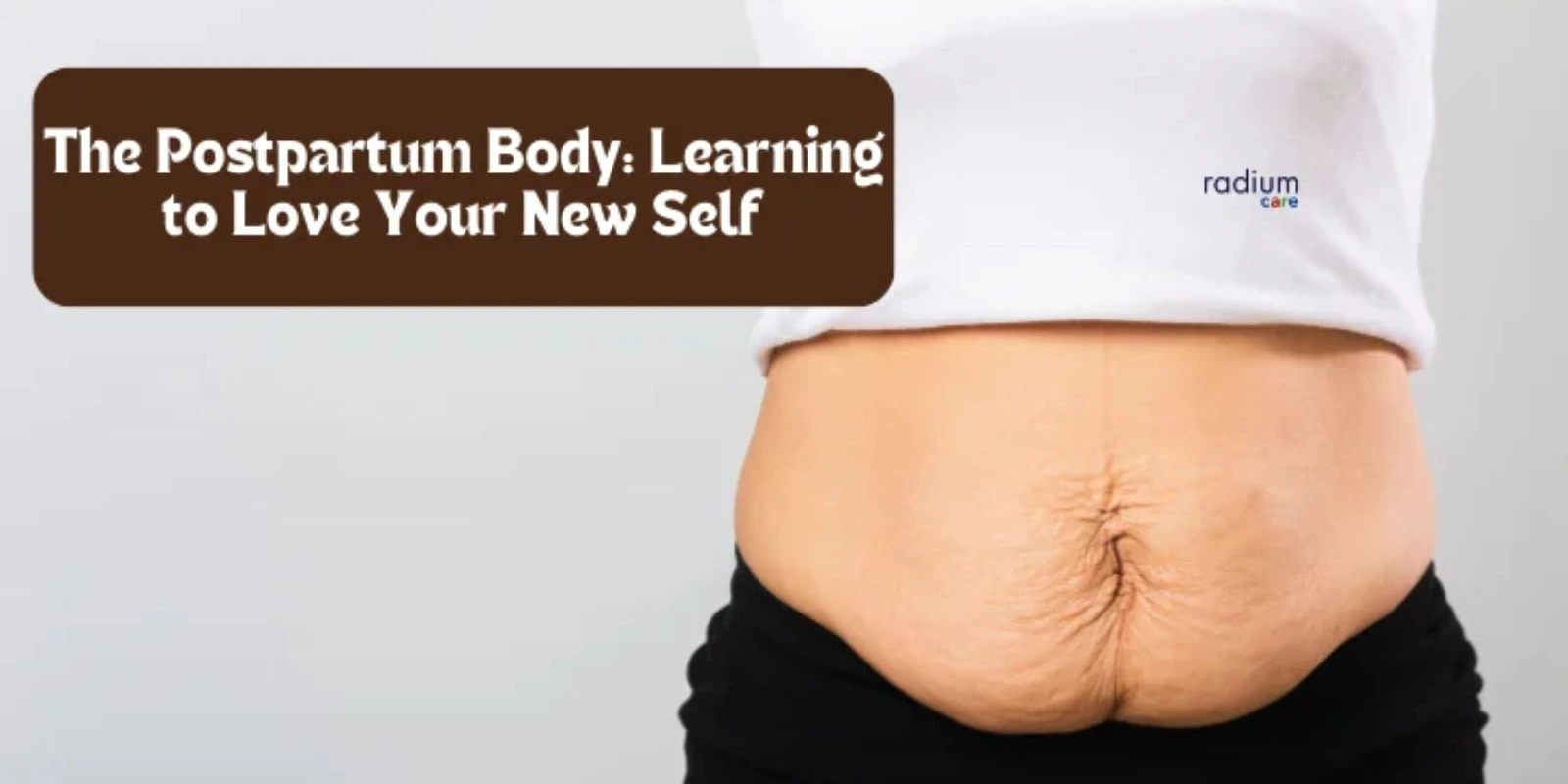
The Postpartum Body: Learning to Love Your New Self
New life brings the woman tremendous transformations in the body as well as in the emotional persona. These changes during the postpartum period can be put to heartening use to strengthen the path towards love and self-acceptance. In this article, we are going to discuss each and every aspect of the body post-pregnancy-including understanding the changes, looking after, and celebrating the new self.
Understanding Postpartum Body Changes
Pregnancy and delivery make radical changes in the physical body of a female. One’s body will fluctuate with weight, their abdominal muscles will be stretched, their skin will sag, and breasts will change in shape, to name a few things. Hormonal and emotional changes also are a factor in well-being. Remembering that most of these changes are normal and part of the awe-inspiring process of making life is essential.
Embracing Body Positivity
Societal beauty standards try to depict the ideal woman’s postpartum body unrealistically. I think it is about time to bid goodbye to judgments made by others and bid hello to self-acceptance and love. Body positivity means finding strength, resilience, and beauty among the stretch marks and scars of the postpartum body. Every stretch mark and scar has a story of love and sacrifice.
Nurturing Your Body
The first few days after delivery, your body needs attention and care. Rest is the ultimate focus, where one must, respectively, slow down to give her body the much-needed healing time. There is no need to put more strain on the body than is necessary; instead, set your pace as you welcome activities and exercises gradually back into your daily schedule. It’s not about “bouncing back” but rather doing things with ease that make you feel good about your body’s journey.
Mental and Emotional Well-being
Once you pass 40 weeks of pregnancy and the baby comes, it can be a roller coaster of emotions. It is always good to keep your mind as well as emotion calm and stable during this time. Be self-comforting & comforting yourself, look into the confidence & strength in your bodies.
Dressing and Styling for Confidence
In fact, your confidence about your self-image is very well supported by the choice of clothes with which you feel comfortable and confident. So try to wear pieces that flatter and function well for the changing shape of your body during the postpartum period. Look out for fashion options that are stylishly comfortable and don’t forget to accessorize in order to personalize your outfits.
Building a Supportive Community Connecting with other new mothers who also face similar postpartum challenges can be an excellent source of support. Joining postpartum support groups or even online communities allows you to share experiences and find advice. Such a supportive community will remind you that you are not alone and provide a safe space in which to navigate through that journey.
Celebrating Milestones and Progress
Acknowledge and celebrate every milestone and progress you make along your postpartum journey. Whether it’s regaining strength, achieving fitness goals, or simply finding moments of joy amidst the challenges, each step forward is worth celebrating. Set realistic goals and expectations, focusing on your overall well-being rather than solely on physical appearance.
Conclusion
Postpartum is a transformative period when both the body and identity of a woman take heavy changes. Accepting and loving your postpartum body opens a new journey of self-discovery and self-acceptance. Take good care of your body, prioritize your mental and emotional well-being, and surround yourself with supportive people around you for a positive & empowering postpartum experience. You are strong, resilient, and so worthy of love and celebration.
Frequently Asked Questions
Q: How long does it take to get back the pre-pregnancy body after delivery?
Ans: Recovery time is different from every woman, and it differs based upon various aspects, which include the kind of delivery she has had, her health, and her healing ability. And remember, everyone’s postpartum journey is different, so there’s no one-size-fits-all timeline to get back your pre-pregnancy body. So focus on taking good care of yourself, listening to your body and giving it time to heal and adjust
Q: Are there any targeted exercises that one can consider in these areas such as abdominal and pelvic floor regions?
Ans: Yes, there are some exercises that condition and strengthen associated areas due to pregnancy. Although the choice of exercises would be relevant as patients need to obtain a provider’s permission prior to engaging in any exercise safely with regard to identified or suspected postpartum conditions or complications.
Q: How do you address postpartum issues regarding body image combined with societal expectations of “bouncing back”?
Ans: There is tremendous effort that goes into overcoming postpartum body image issues and societal pressures to “bounce back.” One should constantly practice self-compassion and surround oneself with people who support you. This body change must be welcomed as a badge of honor to the incredible journey of motherhood. It is vital to celebrate strength and beauty in your postpartum body, not by your looks.
Q: What are maternity clothes that specifically focus on a body after a child has been born?
Ans: Yes, there is postpartum-friendly clothing that emphasizes comfort, functionality, and style. Seek out pieces that allow easy access for breastfeeding, support your changing shape, and accommodate specific postpartum concerns you may have. Maternity and nursing clothing lines generally offer a ton of options in terms of tops, dresses & bottoms that are all about postpartum needs.
Q: How do I seek professional help if I am experiencing any postpartum anxiety or depression?
Ans: For most people, especially new mothers suffering from postpartum depression and anxiety, seeking professional assistance is very important. Consult your doctor or a registered mental health professional with special postpartum mental health condition expertise. They can offer you necessary guidance, support, and appropriate treatment interventions, whether in the form of therapy, counseling, or medication. Remember, seeking help is a sign of strength, and you deserve the best support and care to emerge from this challenging time.
